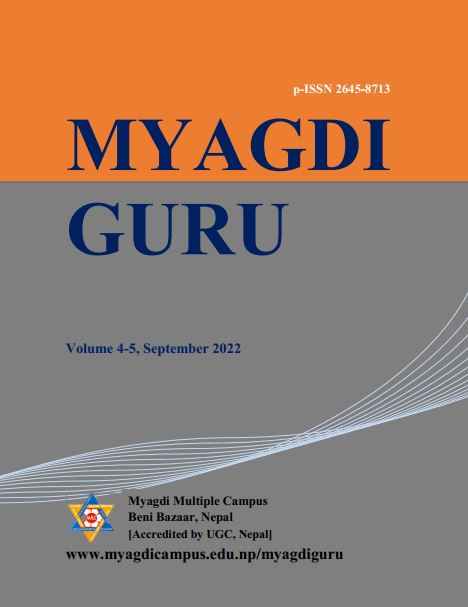Women and Nature in the Margin: An Ecofeminist Analysis of Parijat’s Shirishko Phool [Blue Mimosa]
DOI:
https://doi.org/10.3126/mg.v5i1.70626Keywords:
subordination, Ecofeminism, NatureAbstract
This research paper explores the multifaceted themes of women’s and nature’s subordination in Parijat’s seminal Nepali novel, Shirishko Phool [Blue Mimosa]. Recognized as a cornerstone of Nepali literature, this work serves as a poignant critique of patriarchal and anthropocentric societal structures that marginalize both women and the environment. Through an ecofeminist and literary analysis, this study explores how Parijat intricately weaves together the fate of her female protagonist with the degradation of nature, emphasizing the interconnectedness of these forms of subjugation. Employing a qualitative methodology, this paper utilizes thematic analysis to unravel the layered narrative and symbolism embedded within the text. The findings illuminate Parijat’s critique of societal norms perpetuating these forms of subordination, while also advocating for a more harmonious coexistence between humans and nature, and between men and women. The analysis underscores the significance of Shirishko Phool as not only a literary masterpiece but also a call to action for gender and environmental justice in Nepali society, and beyond.
Downloads
Downloads
Published
How to Cite
Issue
Section
License

This work is licensed under a Creative Commons Attribution 4.0 International License.
This license enables reusers to distribute, remix, adapt, and build upon the material in any medium or format, so long as attribution is given to the creator. The license allows for commercial use.




